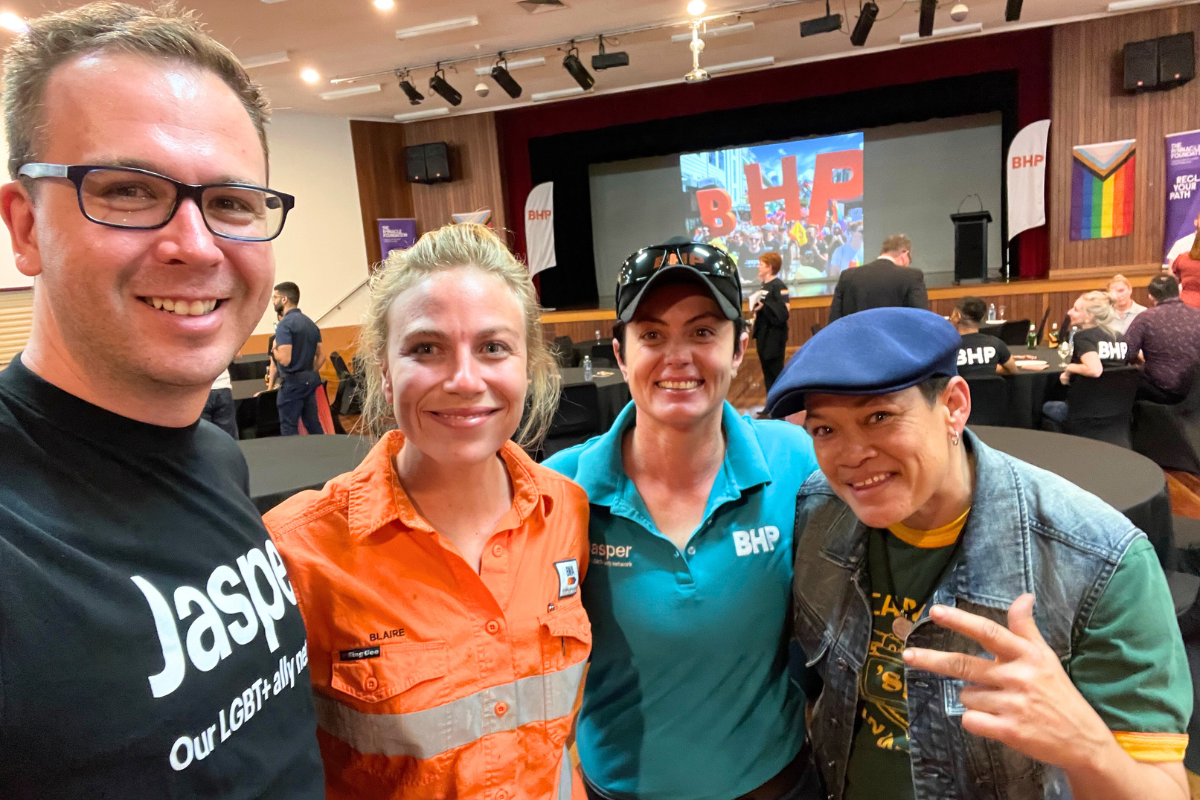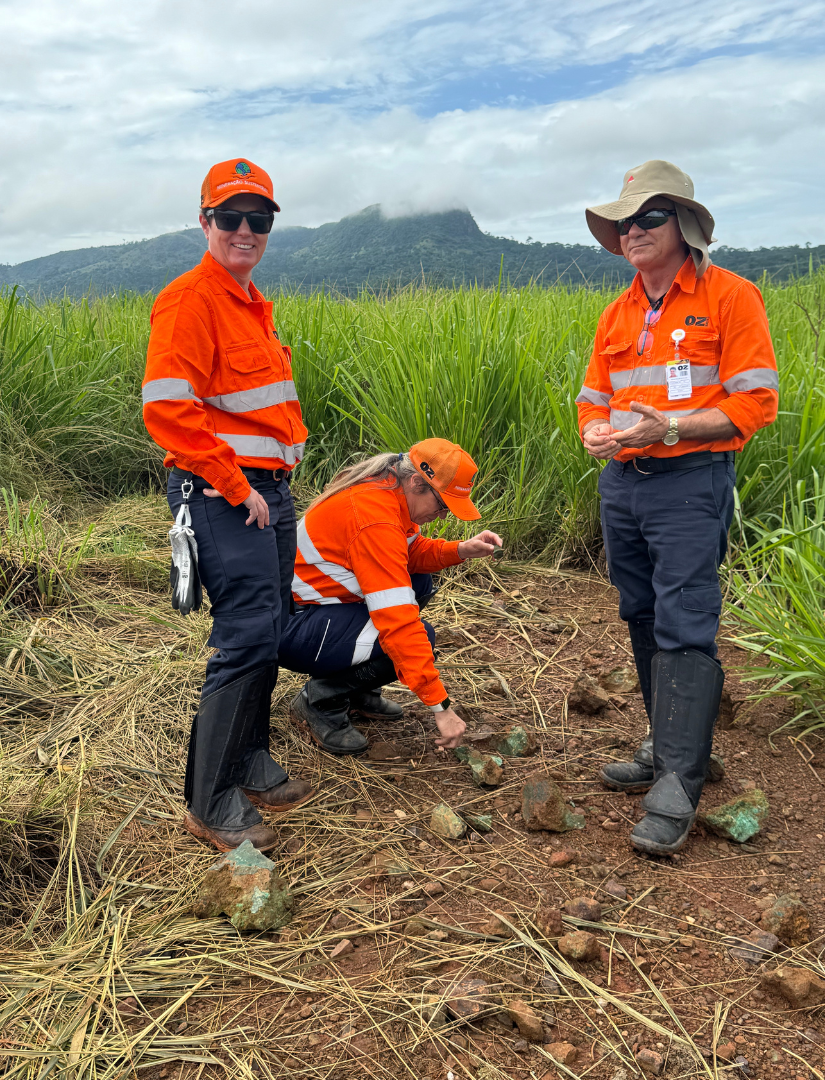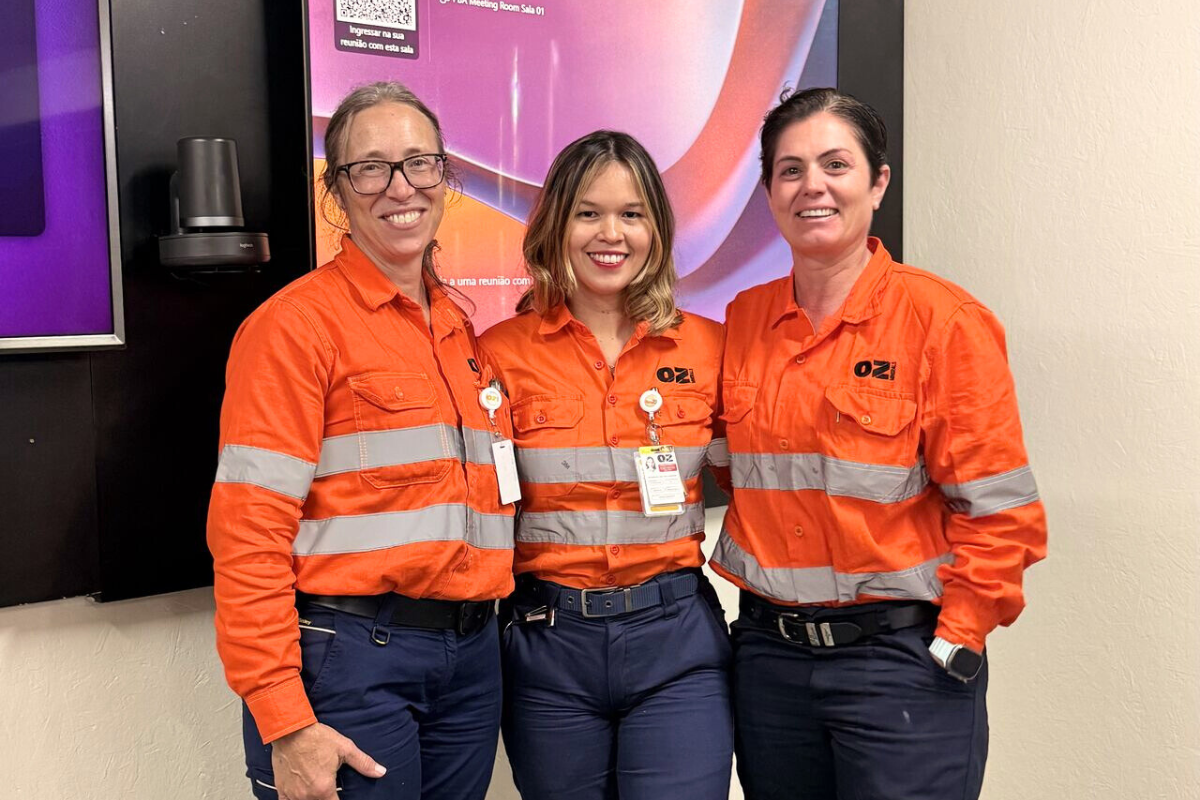Sponsorship and Building Community: A Conversation with Lisa Baptista, Global Head of Technical Portfolio, BHP
Lisa Baptista, Global Head of Technical Portfolio at BHP, describes her role as “one of the coolest in the company.”
In her position, Lisa works at the intersection of corporate development and technical strategy, ensuring her team connects organisational strategies with technical expertise. “We make sure the right people are looking at the right information at the right time,” she explains, “not only to understand risks but to unlock opportunities and synergies within our strategies.” She describes it as “a perfect balance of working quite closely with the organisation on the strategy, but then also deep technical expertise and excellence within our group.”
But Lisa’s story goes far beyond her impressive job title. As a proud Portuguese South African immigrant to Australia, Lisa’s journey has shaped her unique perspective as a leader and advocate for diversity in the resources sector. Lisa and her wife are parents to three boys—Oisin, Daniel, and Harry—as well as two Westie dogs, Archie and Dougal.
A Career Built on Breaking Barriers
Over her 20-year career, Lisa has faced and overcome many challenges. Early in her journey, she recalls being told certain opportunities were off-limits because of her gender. “I was told I couldn’t work offshore or in exploration, as those roles weren’t suited to women,” Lisa shares. Undeterred, she went on to build a career in some of the industry’s most remote and challenging locations, including Madagascar, the Central African Republic, Tonga, Papua New Guinea, and the Democratic Republic of Congo.
However, as her career progressed, a different challenge emerged: her success was often attributed to her gender rather than her capabilities. “It’s really disheartening and discouraging to women, because these undertones diminish the hard work and dedication that they put into their careers.”
Watch Lisa's video below.
Sponsorship: The Key to Industry Transformation
Lisa attributes much of her success to the concept of sponsorship, emphasising the importance of having a strong and well-developed sponsorship network across the industry. “For me, one of the biggest things that has helped my career is the idea of sponsorship,” she says. “It’s about making sure we have a really strong network to support people across the industry, ensuring talent is nurtured and given the opportunities they need to succeed.”
She emphasises that effective sponsorship goes beyond traditional mentorship and plays a crucial role in breaking down barriers in talent recognition. “It is really important that we’re not only challenging our ideas of metrics and merits but also how we find and bring talent into the room,” Lisa says. “Are we only relying on one way for talent to be presented, or are we actively seeking out those hidden gems who might be overlooked due to systemic obstacles?”
For Lisa, sponsorship is more than just an act of advocacy—it's about creating space for talent to thrive in the way it needs to. “Sponsorship for me goes beyond just an act of sponsorship. It’s how each individual helps nurture and allow talent to exist in the way that it needs to exist,” she explains. “When you think about being a leader and having talent conversations, consider how you’re getting new names into those discussions. Are you waiting for the same names to be presented, or are you actively going out and finding someone completely different?”
Lisa highlights how individuals from underrepresented groups—such as those from the LGBTQI+ community, Indigenous groups, or immigrants—may face unique challenges in networking and self-promotion. “There are a lot of people who don’t know how to actively network, who don’t know how to promote themselves,” she notes. “How are we helping those people find their way into talent discussions? Especially for non-dominant groups, like LGBTQI+ communities, Indigenous communities, or those who have just immigrated and don’t have an established network. How are we helping them navigate that?”

She also stresses that sponsorship is about creating real opportunities for people to rise and be heard. Being a sponsor means giving someone a seat at the table, amplifying their voice, and challenging the status quo. It’s not just about giving advice; it’s about creating opportunities.
Leading LGBTQI+ Inclusion Through Jasper
Lisa is also a passionate advocate for LGBTQI+ inclusion as the leader of Jasper, BHP’s LGBTQI+ network. The group operates across the world and led by an incredible group of volunteers and allies. It has numerous purposes to serve the LGBTQI+ community, but its main purposes include:
- Building Community: Offering a safe and supportive space for LGBTQI+ employees and allies.
- Challenging Systems: Ensuring BHP’s policies and practices are inclusive not only to that community, but other non-dominant groups.
- Influencing Society: Extending LGBTQI+ advocacy beyond the organisation.
Lisa is particularly proud of the network’s achievements in regions like Chile, where BHP was recognised as a leading employer for LGBTQI+ inclusion. “Traditionally, people thought, ‘It’s such a conservative culture, there’s no way we can have a conversation,’” she explains. “Now, we’ve been able to influence not just workplaces but also schools, making society safer and more inclusive.”
In other regions, the challenges differ. “In parts of Asia, safety and security are still the biggest concerns—it’s about meeting basic needs,” Lisa shares. “And in certain parts of the U.S, cultural resistance can make these conversations difficult. But it’s not about changing anyone’s beliefs. Instead, it’s about anchoring to a fundamental principle: nobody should be bullied, nobody should be beaten, and everyone deserves a right to be respected.”
Reflecting on Jasper’s journey, Lisa notes the importance of fostering an environment that truly celebrates diversity. “We started with a focus on bringing your whole self to work, and it was a success,” she says. “But we realised it’s not just about people feeling brave enough to show up as themselves—it’s about creating an environment that’s ready to embrace and celebrate that diversity.”
Shifting from Representation to Systemic Change
Lisa believes the resources industry has made significant progress in diversity and inclusion but acknowledges that more work is needed. She emphasises the importance of intersectionality in diversity and inclusion efforts, explaining that diversity should not be viewed through a binary lens but as a multifaceted concept. “we're more than just the sum of our parts,” she says. “I’m a female, a mother, an immigrant, and culturally and linguistically diverse; there are a lot of parts to me and if we just home in on one part we don't really do ourselves service.” Addressing diversity holistically means recognising all these factors together.
Reflecting on the theme of driving positive change together for International Women's Day, Lisa advocates for solutions that address barriers for multiple groups simultaneously, noting that challenges faced by one non-dominant group often affect others. For example, initiatives to improve diverse leadership at the C-suite level not only benefit women but also the LGBTQI+ community, people of colour, and culturally diverse individuals. “The things that challenge one non-dominant group will actually challenge another non-dominant group,” she explains.
Lisa believes that when organisations focus on policies and initiatives with multiple lenses, they can create more effective, inclusive solutions. This approach reduces change fatigue and makes diversity initiatives more sustainable. By addressing issues such as sexism, racism, homophobia, and other forms of exclusion simultaneously, organisations can better support all underrepresented groups, ultimately benefiting everyone.
Advice for the Next Generation
Reflecting on her career, Lisa shares that, as a pioneer and someone who has worked across various regions and roles in the industry, she often felt the pressure of being first. “I think part of the struggle of being a pioneer and being the first can sometimes feel like a burden” she shares, “and it wasn't mine alone, I wish I'd understood that a little bit at the time." Looking back, Lisa wishes she had taken more time to appreciate the journey. "I was so focused on the destination that I forgot we were actually on a journey together," she explains. "I wish I’d just taken a deep breath and focused on where I was at the time."
Lisa's key message for the next generation is about the power of influence. "We all have a little bit more power than we actually really understand," she reflects. "We tend to think that we need to be in leadership positions to create change, but we have a lot of power, and a lot of influence." Lisa encourages others to recognise the potential for change in these everyday interactions. "We can influence our colleagues, our leaders, and our family and friends, and I don’t think we value how much we can change just through conversations," she says.

Her advice is clear: "Regardless of who we are and what position that we're in—take every opportunity to enact change through conversations and moments that matter as we journey through our careers.”
Stay tuned as we continue sharing more inspiring stories featuring women in mining. Join us for our national International Women's Day Event Series 2025 for inspiring celebratory luncheons and networking, 27 February - 14 March 2025.

